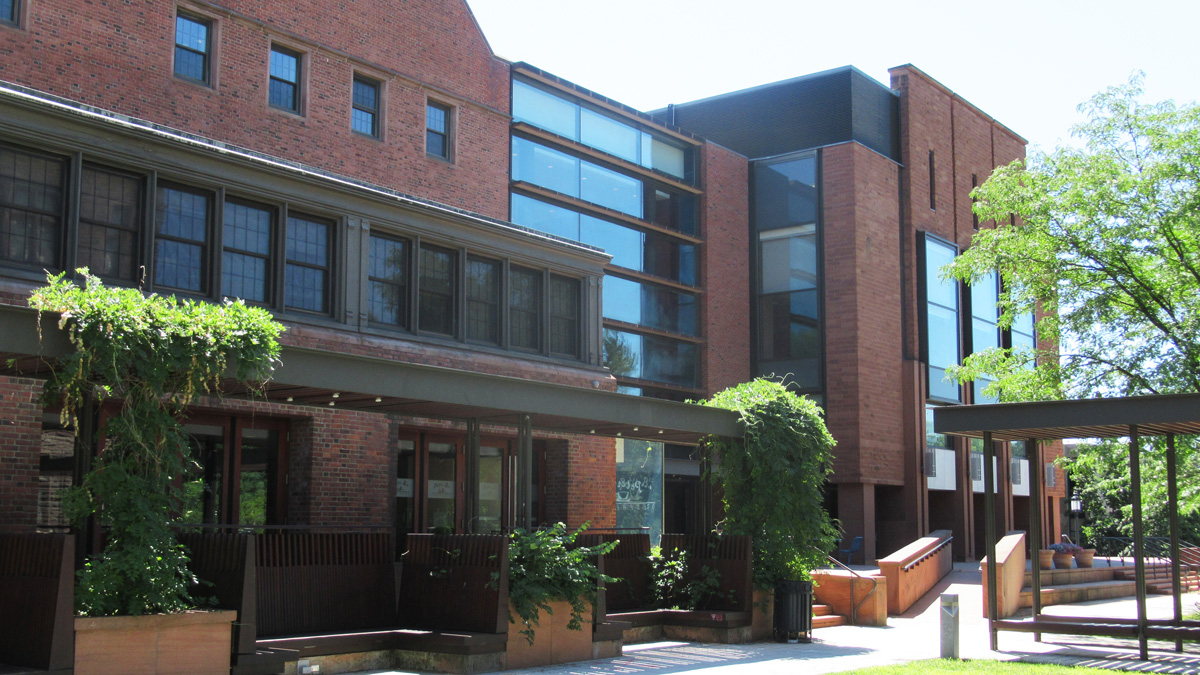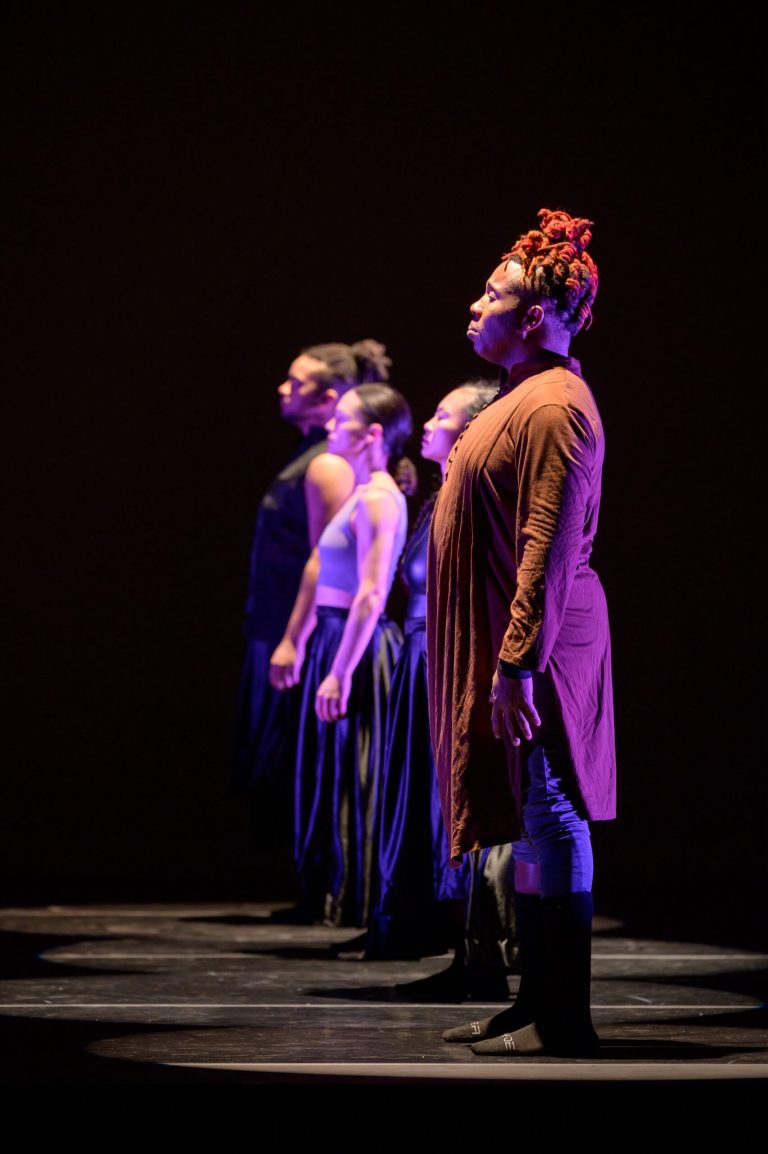Caitlin Doherty ’26
News Editor
NOTE: No names are included in this piece because the individuals interviewed expressed fear and apprehension about expressing their thoughts on this issue because of how many faculty and administration members have responded in the past.
For most students, the night before an exam is marked by frantic studying, coffee, and staying up well past midnight, but students with disabilities at Trinity face an additional level of stress: They often don’t know if they will be able to take their test the next day with the accommodations that they need. In an interview with the Tripod, the three founders of the new Disability Cultural Club here on campus discussed the ableism and barriers they have faced as disabled students on this campus. “I’ve talked to some professors who have started giving their exams solely online so that they can be in charge of ensuring their students have access to accommodations because they don’t trust SARC [Student Accessibility Resource Center] enough to do it. I’ve heard of students having tests taken there [at SARC] that were either never delivered to their teachers or only half delivered, so they were missing half of the exam.” One of the founders shared that the current director of SARC has emailed her multiple times the night before she was scheduled to take an exam in the Center because they would no longer be open at that time. Once, the director failed to email her and contacted her professor instead, leaving her no way to know that her important exam the next day needed to be changed.
Even if a student gets their accommodation plans approved by SARC, many professors refuse to comply. “I had professors take points off of my final grade for being in the hospital. I had professors not willing to move exams because I had to be in the hospital… I also had a professor report me to the dean for requesting accommodations. And when I brought these issues to the deans, they were like ‘No they can do this. It’s the professor’s choice whether or not to grant you accommodations,’” reflected another leader of the student organization. “This past year I had issues with SARC granting accommodations… My accommodations had been approved, my professors had approved them… and SARC just didn’t go about putting them in place. So I reported that to a dean, and their response was ‘Well we’ve never heard of anybody needing that before.’” All three founders of the Disability Cultural Club on campus have an approved accommodations plan with SARC, which requires them to submit medical documentation and other forms, yet the Center and professors have often failed to follow these plans. According to Trinity’s legal information webpage on the American with Disabilities Act, institutions are required to ensure that students receive the reasonable accommodations that they need. Whether because SARC fails to follow through on a student’s accessibility plan or professors refuse to institute these accommodations, disabled students at Trinity are being denied the support stipulated in the ADA.
During the 2021-2022 school year, the Student Accessibility Resource Center has undergone a tumultuous shift in leadership. After the former director left the College at the close of the fall 2021 semester, the Center was without a director for the spring semester. The leaders of the Disability Cultural Club recalled that employees from offices around campus like the Bantam Network and the Dean of Students Office would randomly oversee the Center when they had a lighter workload. Eventually an interim director was hired last summer as a transfer from another Trinity department. While these three students have had burdening complications regarding their accommodations because of the current organization of SARC, they all feel that they cannot fully blame the barriers they have faced on the Center; rather, they see the administration’s lack of support for SARC as the root of the issue. “They [the administration] are expecting one person to do the work of three. So of course it’s going to be disorganized, of course people’s things are going to get lost, people are going to slip through the cracks without the accommodations they need.” Instead of being a space of support and encouragement for students, SARC has stressed out disabled students more because the Center simply does not have the resources to serve students properly. “I see money going into a bunch of other things, but I don’t see it going into the SARC at all really. All I see is one person [the interim director] in there, and I see college-aged students working in there when I know that it should be adults. Is it really appropriate for me to go in there to have my accommodations and see a peer?” commented one student during the interview.
Administration is currently deciding between the current director and another candidate to serve in the position of Student Accessibility Director permanently. While the interim director in charge of SARC this semester has a strong background in undergraduate residential life, he has little experience in accessibility services and disability law prior to this position. The other candidate, however, has years of experience working for accessibility offices and for disability rights organizations. During the three interviews for this article, each interviewee noted how vital it is for someone who is knowledgeable about disabilities to lead Trinity’s Student Accessibility Resource Center. Along with the three leaders of the Disability Cultural Club, the student founder and faculty advisor for the new Students for Accessibility organization were interviewed for this article. Students for Accessibility hopes to directly advocate for change by uniting the Trinity community to educate and inform against the ableism of many faculty members and the administration, and the Disability Cultural Club was established as a safe space for students with disabilities to share their challenges and work for change. They both aim to work together to make Trinity a more accessible and empathetic campus.
The founder of Students for Accessibility, a junior at the College, gained a different perspective on being disabled at Trinity after she had knee reconstruction surgery last year and needed a new plan for physical accommodations, although she already had an academic accommodation plan in place throughout her time at Trinity. She faced barriers as her classes had to change locations and was in need of accessible parking near her dorm room. She quickly realized that very few buildings on Trinity’s campus are truly accessible. Seabury Hall, for instance, has an elevator, but someone must climb a number of steps to get to the elevator unless they want to go around the Long Walk, through the back parking lot, and up a ramp if they are not able to use stairs. “Sometimes Trinity, when it comes to accommodations, reacts to situations rather than being proactive. When dealing with accessibility, you should be ahead of that. When someone’s telling you they need support, that should be one of the most important things. Accessibility is one of the last things to be thought about here at Trinity.” This lack of proactivity for students in need of accommodations extends beyond the physical accessibility of the campus. As one of the Disability Cultural Club students shared, “In terms of being neurodivergent on this campus, I don’t want to say there’s not a ton they can do… there’s not a lot that they want to do. Because I did have accommodations in high school, and there were some that made high school a lot more accessible for me.”
The barriers that disabled students at Trinity face, reflected in these experiences shared by student leaders, reveal a deep-rooted system of ableism at the College that is enforced by unempathetic faculty and administration members. The faculty advisor for Students for Accessibility, who has physical, emotional, and mental disabilities, stressed the importance of accountability and education for faculty who refuse to give accommodations to their students. “When I think about disability here, I think about the lack of knowledge, the lack of support, and the lack of resources.” She identified vital steps the College must take to become an accessible community: a cultural shift from apathy to genuine care, incorporating anti-ableism into teaching and curriculum, and taking concrete steps to alter College policy to support disabled students. This professor’s transition to Trinity as a disabled person was extremely difficult because of a lack of overall support, and she has fought for change because she wants the College to be more open to other disabled individuals. “I will not stop, because I can’t, because it’s my life, and because it’s my students’ lives… I’m so passionate about being a part of the Trinity community, about building up disabled faculty, staff, students, and helping others be informed and become allies. It matters. I cry over it, I have joy over it, I’m afraid, I go home and I worry about it, and I come to class and I teach about it.” Throughout her time at Trinity, she has connected with other faculty and students with disabilities and allies, and she has advocated to make Trinity more accessible because she cares so deeply about the community. “This is an emergency… This is affecting people’s lives today. This is causing physical, emotional, and mental health issues. It contributes to attrition, to students leaving Trinity, to lack of graduation… And we could do so much more to change that.”







[…] Ableism at Trinity: Disabled Students Share Their Harrowing On-Campus ExperiencesBy Caitlin DohertyThe Trinity Tripod,Trinity College […]